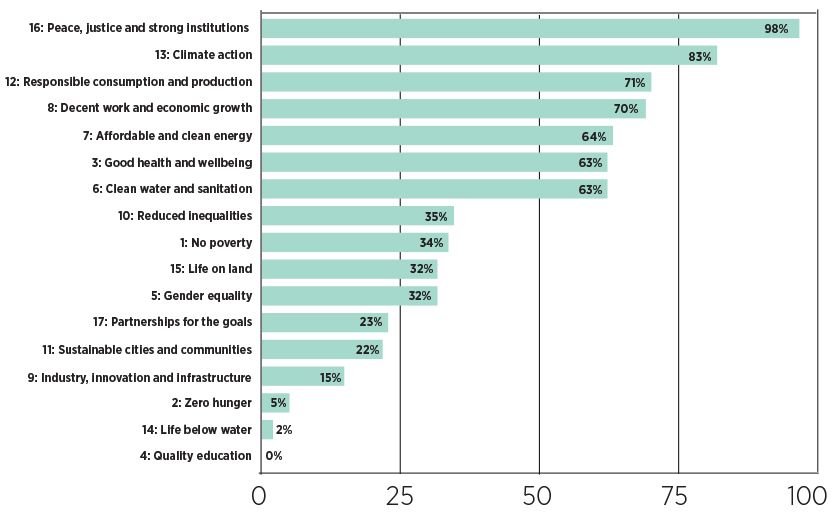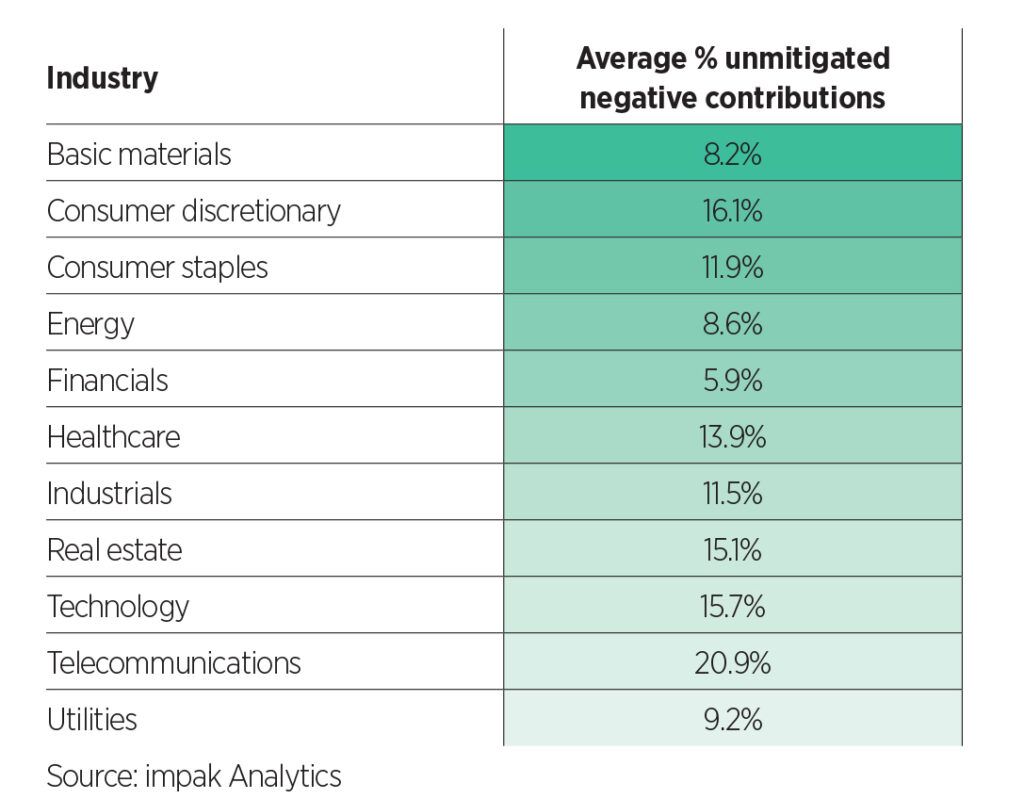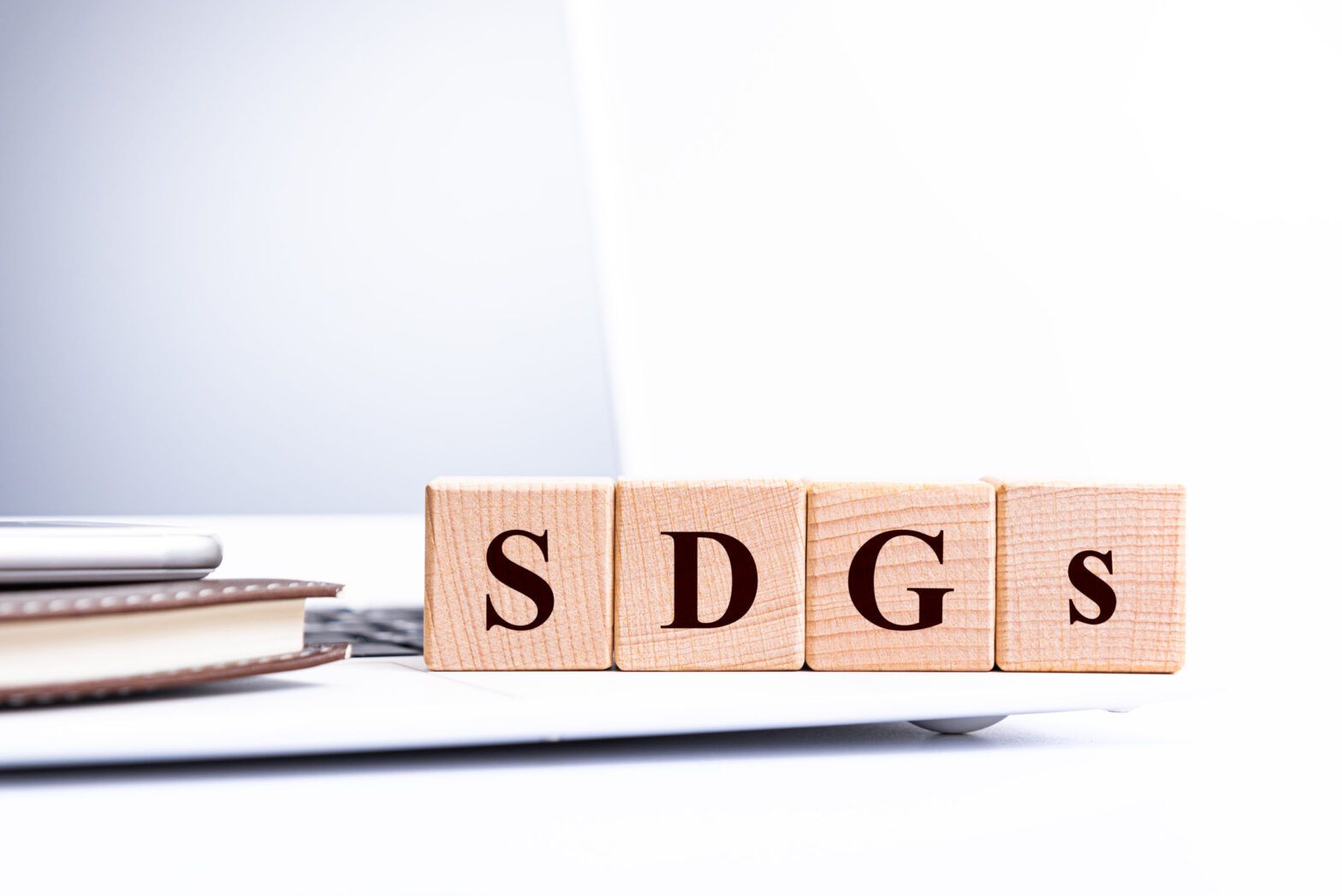Just 4% of revenue from Europe’s listed companies is positively contributing towards the Sustainable Development Goals (SDGs), a study from impak Analytics has found.
The annual SDG Summit taking place next week marks the halfway point to achieving the goals, and yet the UN has reported the world is “far off track”.
Many companies and their investors are keen to show their contributions towards the SDGs, however, impak Analytics has found only 15% of Stoxx 600 companies (89 companies) generate one or more positive contribution. And, more concerningly, almost two-thirds of companies are not effectively mitigating their negative contributions.
Of those that do contribute positively, the distribution across the SDGs is not even, with some receiving significantly more attention than others. Six SDGs (4: Quality education, 5: Gender equality, 8: Decent work and economic growth, 14: Life below water, 15: Life on land, and 16: Peace, justice and strong institutions) have no revenue associated with positive contribution.
This might be due to market demand and the index composition of mainly industrial and consumer discretionary businesses, the study noted, but the SDGs do not exist in silo and must be achieved together.
“Our analysis reveals that some firms report SDG-positive activities, often with limited impact or evidence, sometimes unrelated to their core business, intentionally benefiting from a blur between positive contribution and mitigation of a negative contribution,” the report said.
“Others take easy shortcuts. For instance, selling electric vehicles does not necessarily have a positive contribution. The net contribution could be negative depending on where the car is sold and the energy mix used to produce the electricity to power the car.”
Negative contributions
The study, Mission 2030: A False Start? analysed 575 out of the 600 constituents of the Stoxx 600 index as of 19 June 2023 with a split across sectors and used a proprietary tool that uses a sector-based double materiality assessment, and a geographical impact element, to assess positive and negative contribution to the SDGs.
It found almost every company in the Stoxx 600 negatively contributes to the SDGs, with 98% of these companies involved in corrupt practices, including bribery, mishandling sensitive data, and displaying a lack of transparency within their supply chains.
Almost every Stoxx 600 company negatively contributes

Source: impak Analytics
Some sectors are worse offenders than others. For example, within the utilities sector, approximately 10% of companies make detrimental contributions to SDG 14. Notably, the sub-sector of water utilities plays a predominant role in driving these negative impacts in this SDG.

“The conclusions of our negative contribution analyses are rather gloomy,” the report authors reflected.
“At the halftime point to 2030, the Stoxx 600 needs to truly address the challenges we are currently facing. Due to their gravity, these challenges represent a widespread risk for investors, companies, governments, society and the environment.”








